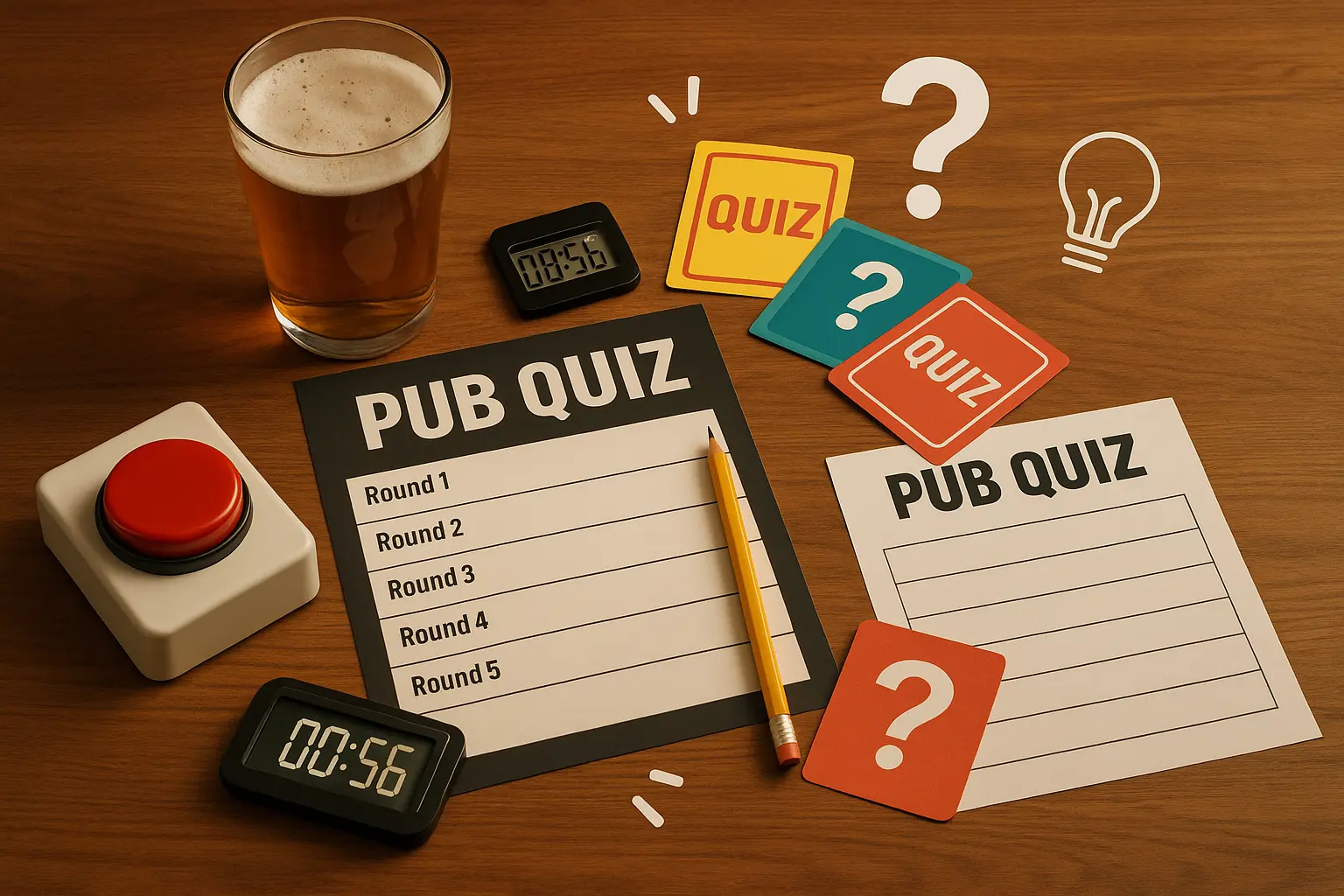BLOG
What Is Trivia? Why It Matters and How It Can Be Fun


Tom Gillespie
Nov 16, 2025 • 5 minutes
Category:
Quiz Tips
What Is Trivia? Why It Matters and How It Can Be Fun The Joy of Knowing Things There’s a special satisfaction in knowing the capital of Mongolia or recalling who scored the winning goal in a World Cup final. Trivia may seem like a light-hearted pastime, but science shows it is much more than entertainment. Trivia engages memory, strengthens brain function, and fosters social connection while being fun. Whether played at a pub, online, or through mobile apps like Quizified, trivia combines the best elements of learning and leisure: challenge, curiosity, and reward. To understand the learning science behind mobile apps, read Learning with Mobile Apps. The Cognitive Science of Trivia Active Recall and Memory Reinforcement Trivia games are built on active recall, the process of retrieving information from memory without cues. This mental exercise strengthens neural pathways responsible for storage and retrieval. Each question acts as a mini “memory workout”. A 2019 study in Frontiers in Psychology found that participants who engaged in frequent recall-based activities improved long-term retention by up to 30% compared with passive learners. Trivia mirrors this process perfectly: each time you answer a question, you activate and consolidate memory traces. Learn how repetition reinforces these neural pathways in The Power of Repetition in Learning. Mental Flexibility and Problem-Solving Beyond recall, trivia enhances mental flexibility, the ability to shift between different ideas and apply knowledge creatively. Questions often require reasoning, analogy, and contextual thinking, all of which stimulate the prefrontal cortex, the part of the brain responsible for decision-making and cognitive agility. Research in Neuroscience Letters (2021) showed that adults who engaged in varied cognitive games like trivia displayed faster task-switching and improved working memory over time. In essence, trivia keeps your brain agile, improving both the speed and accuracy of thought. For more on how mixing topics improves flexibility, see Techniques for Learning and Building General Knowledge. The Dopamine Effect: Why Trivia Feels So Good When you answer a question correctly, your brain releases dopamine, a neurotransmitter associated with pleasure, reward, and motivation. This chemical reaction explains why trivia feels instantly gratifying and why people keep coming back for more. A 2018 study in Cognitive, Affective & Behavioral Neuroscience found that knowledge-based rewards trigger dopamine in the same neural circuits activated by food, music, or social praise. Essentially, learning feels good because it activates the brain’s reward system. Apps like Quizified and pub quiz nights exploit this mechanism through gamification such as points, badges, and progress tracking, which further boost motivation. Every correct answer is not just knowledge gained; it is a neurochemical reward reinforcing curiosity and persistence. Read how gamification supports learning motivation in Learning with Mobile Apps. Trivia and Brain Health Cognitive Longevity Engaging the brain regularly in problem-solving and memory recall is associated with better cognitive health and a reduced risk of decline. A 2020 study in the Journal of Aging and Mental Health found that adults participating in weekly trivia or puzzle activities maintained stronger short-term memory and reasoning skills over three years compared with a control group. Trivia’s combination of recall, reasoning, and social engagement provides what neuroscientists call “cognitive enrichment”, a protective factor against cognitive ageing. Like physical exercise for the body, regular trivia acts as mental fitness training for the brain. Reducing Stress and Supporting Mental Wellbeing Trivia is not only intellectually stimulating; it is also emotionally beneficial. Playful learning environments can help reduce cortisol levels (the stress hormone) and increase dopamine and serotonin, both linked to improved mood and motivation. Socially engaging games, in particular, have been found to reduce loneliness and enhance feelings of belonging, outcomes strongly associated with mental health and life satisfaction. The Social Benefits of Trivia Building Connection Through Knowledge From pub quizzes to online tournaments, trivia is a shared experience. It bridges generations, backgrounds, and interests by celebrating curiosity and communication. Research in Group Dynamics: Theory, Research, and Practice (2020) found that participants in collaborative trivia games reported higher trust and team cohesion compared to those in purely competitive settings. Sharing knowledge, laughing over obscure facts, or debating answers strengthens social bonds. Trivia thus doubles as both a learning exercise and a social connector. Learn how consistent learning habits foster motivation and belonging in Daily Practice vs. Weekly Cramming. Competition and Cooperation Healthy competition is a potent motivator. Trivia’s scoring and ranking systems create goal-oriented engagement, keeping participants invested. But cooperation also plays a key role: team quizzes require discussion, consensus, and perspective-sharing, all of which improve communication skills and empathy. Quizified’s asynchronous league features build on this principle, allowing users to challenge friends or compete globally at their own pace, combining rivalry with camaraderie. Trivia as a Gateway to General Knowledge Trivia does more than test what you already know; it builds knowledge through repeated exposure to diverse subjects. Each question broadens understanding and triggers curiosity to learn more. This continuous, curiosity-driven exploration supports semantic memory, the storehouse of facts, meanings, and concepts. Psychologist Daniel Willingham notes that “knowledge makes learning easier” because background knowledge allows new information to be encoded more efficiently. In this way, trivia creates a virtuous cycle: the more you know, the faster you learn and the more enjoyable it becomes. For strategies to expand general knowledge through structured methods, read Techniques for Learning and Building General Knowledge. The Role of Technology in Trivia Learning Digital tools like Quizified merge neuroscience with entertainment. Through adaptive question difficulty, progress tracking, and spaced repetition algorithms, apps can transform trivia from casual play into evidence-based cognitive training. By engaging users in short, daily sessions, Quizified aligns with the spacing effect and microlearning principles outlined in Learning with Mobile Apps and The Power of Repetition in Learning. This design ensures that each question not only entertains but also strengthens memory retention and problem-solving capacity. Trivia as Playful Intelligence Trivia is far more than a pastime. It is a scientifically supported method for improving recall, focus, mental agility, and social connectedness. By blending active recall, dopamine-driven motivation, and social learning, trivia provides a joyful route to lifelong cognitive health. Whether you play casually at the pub or regularly on your phone, trivia taps into our most human drive, curiosity, and turns it into growth. It is proof that learning does not have to feel like studying to make you smarter. Feed your curiosity and train your brain the fun way. Download the Quizified app today to test your knowledge, challenge friends, and experience how trivia can make learning both rewarding and enjoyable. Play daily. Learn effortlessly. Grow intelligently.